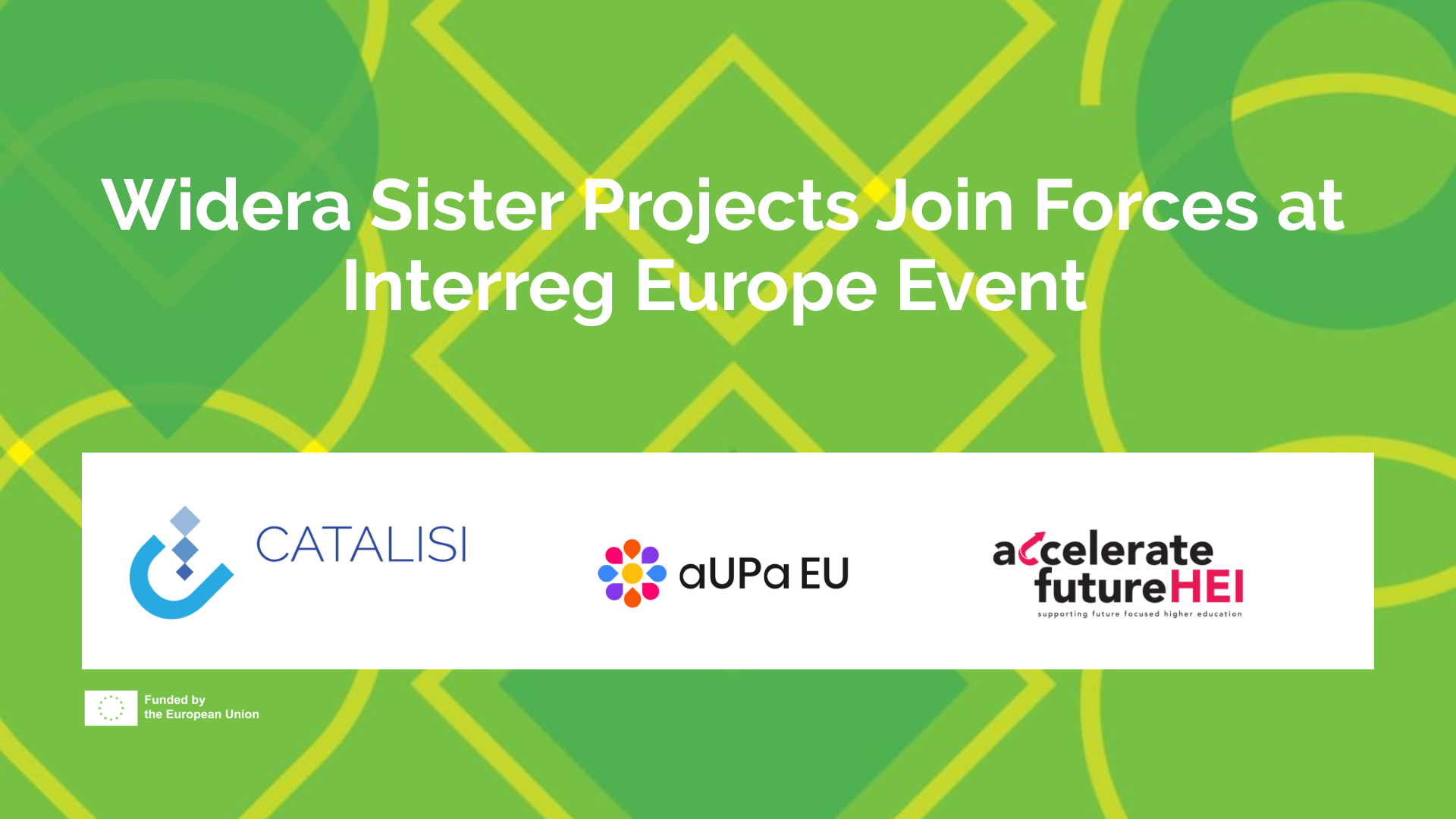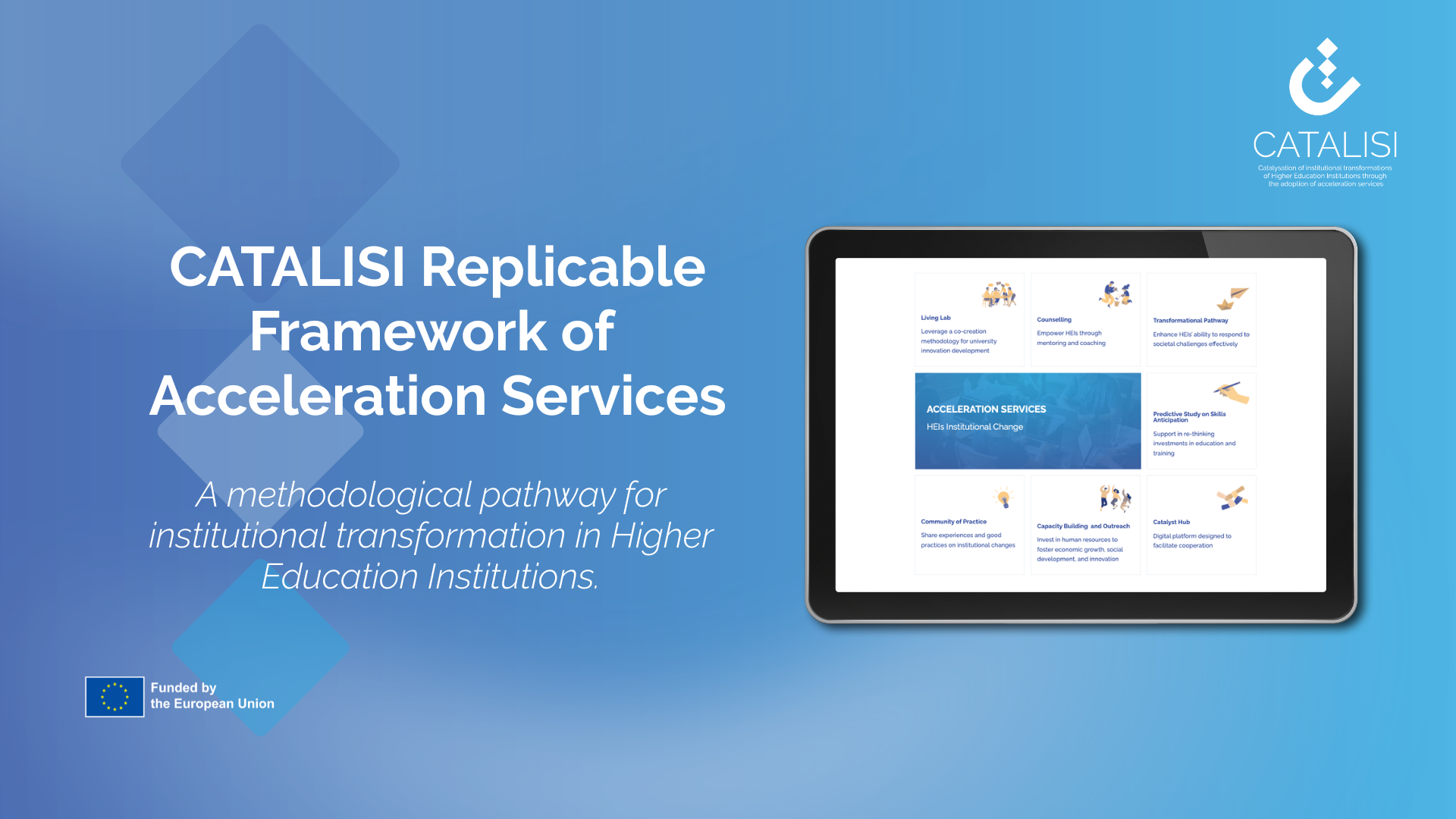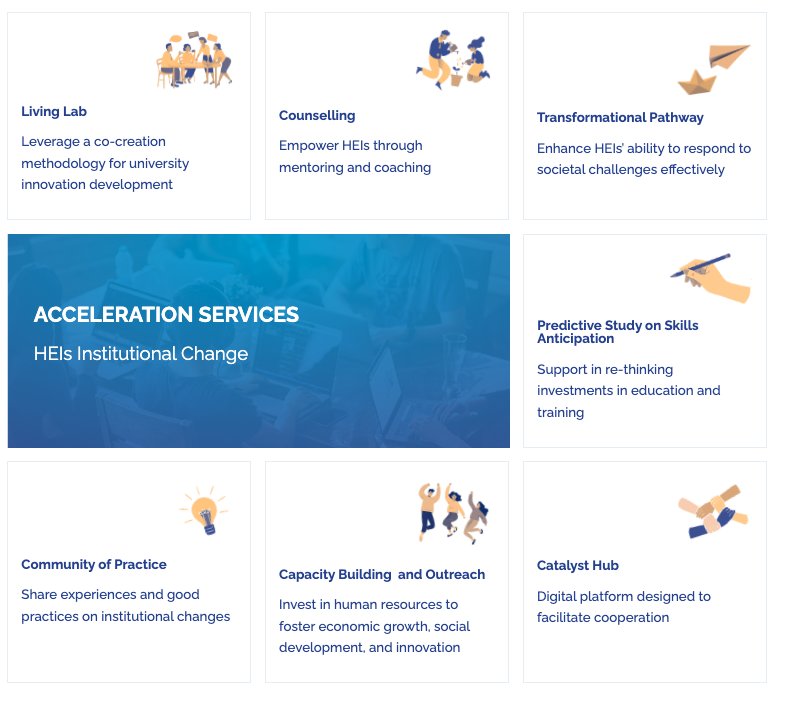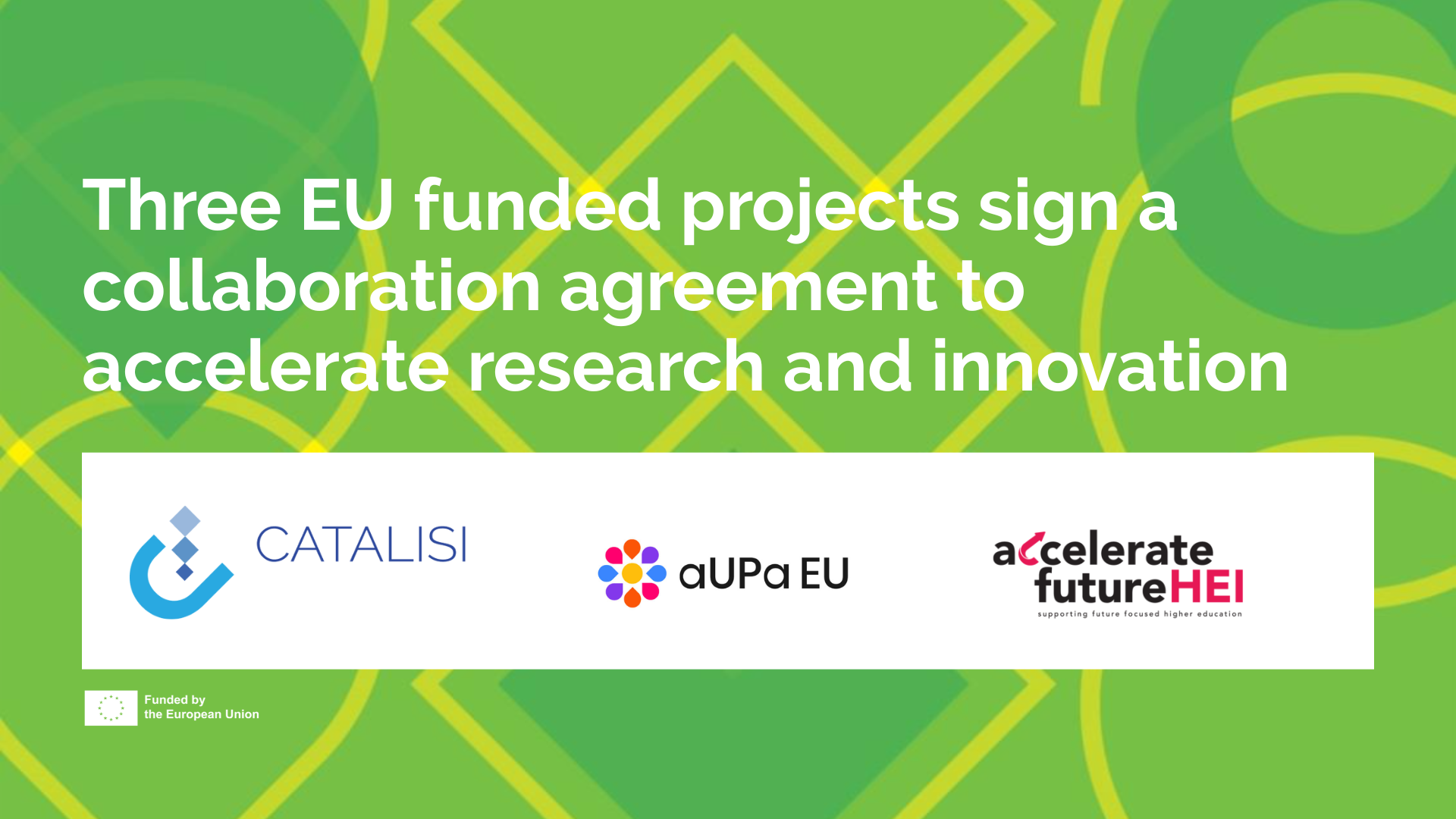On October 2nd, 2025, the WIDERA Projects Accelerate Future HEI, aUPaEU and CATALISI participated in an Interreg Europe event, “Connecting regions, empowering universities through stronger R&I policies”, co-organised by the Interreg Policy Learning Platform and the University Industry Innovation Network (UIIN).
The event brought together policymakers, universities, research centres, and European stakeholders, offering a valuable opportunity to exchange views on strategies for strengthening regional research and innovation (R&I) policies, within Interreg and ERA WIDERA-funded projects. These key actors in the research and innovation ecosystem were the focus of Maria Mecenero, Policy Officer, Directorate-General for Research and Innovation (DG RTD), presentation.
The session was especially significant as it united the three sister projects, Accelerate Future HEI, aUPaEU and CATALISI, who are creating synergies and highlighting shared approaches to drive institutional transformation across Europe. The central question guiding the workshop:
How can Europe’s Higher Education Institutions (HEIs) become powerful engines of innovation and catalysts for societal change?
Here are some key takeaways that can help us answer this.
- A Strong Policy Foundation
Speakers from Interreg Europe and the European Commission (DG RTD) highlighted how HEIs are pivotal to achieving Europe’s innovation goals. They stressed the importance of interregional collaboration, knowledge sharing, and transformation agendas aligned with EU policy priorities. - Acceleration in Action
The Accelerate Future HEI project demonstrates how targeted acceleration services can help universities strengthen their role within regional innovation ecosystems. By piloting practical models, HEIs can move from being knowledge providers to active innovation brokers. - Powering Collaboration Through Digital Services
The aUPaEU project showcased how shared digital infrastructures, Agora platforms, boost collaboration, accelerate knowledge transfer, and make innovation processes more efficient and scalable. - Embedding Transformation for the Long Term
Through CATALISI, HEIs are building internal capacity to integrate acceleration services strategically and sustainably, ensuring that transformation is a permanent institutional shift. - Interregional Synergies Matter
Speakers emphasised the value of connecting initiatives across regions to scale up successful practices, avoid fragmentation, and create stronger innovation networks.
As John Edwards, Secretary General of EURASHE, put it during the plenary: “HEIs must be seen not only as knowledge hubs, but as active innovation actors in their communities.”
This shared vision aligns the work of Accelerate Future HEI, aUPaEU, and CATALISI, demonstrating how collaboration, digital infrastructure, and institutional transformation can work hand in hand to strengthen Europe’s innovation landscape.
The event sparked great interest from participants, opening new perspectives for networking and future collaborations. Thank you to Marc Pattinson, Interreg Europe and Rimante Rusaite, UIIN, for their excellent moderation and to everyone who joined and contributed to the discussion.
For more information, presentations and the YouTube recording: https://www.interregeurope.eu/news-events/news/connecting-regions-empowering-universities-through-stronger-ri-policies-key-learnings




